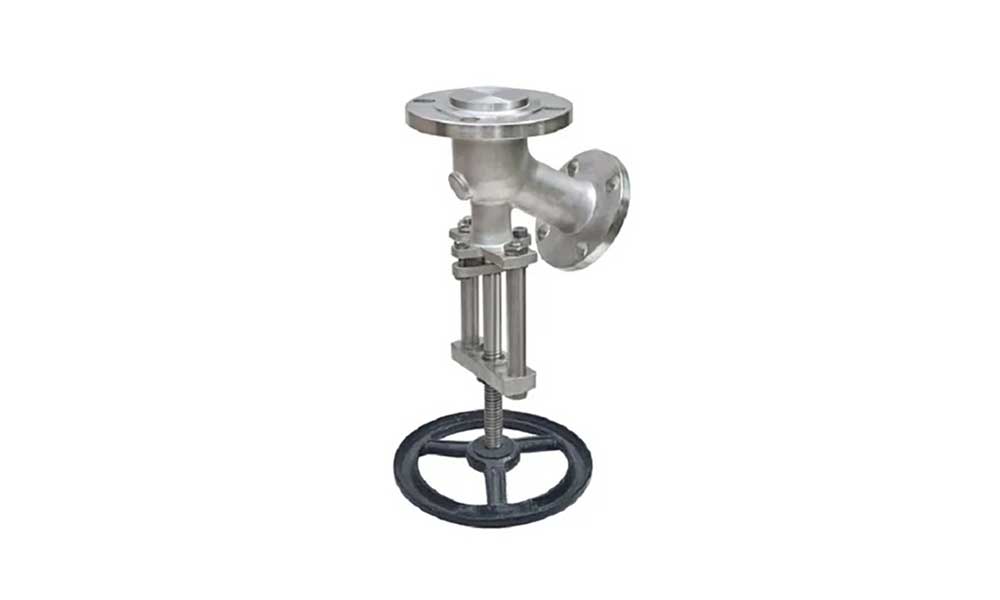Industrial Valves for Chemical and Process Industries
High-Quality Valves for Flow Control, Safety, and Precision

Overview
Valves are critical components used to control the flow of liquids, gases, or semi-fluids in industrial, chemical, and pilot plant processes. They regulate flow, pressure, and temperature while ensuring safety, efficiency, and reliability.
At Atommek, we design and manufacture valves to meet international standards, fully customizable to your system requirements. Our valves are made from certified materials such as AISI 304, 316, 316L stainless steel, carbon steel, nickel alloys, and composites, ensuring durability and chemical resistance.
Our valves are compatible with Mixing Vessels, Pilot Reactors, Pilot Mills, Tubular Heat Exchangers, Mobile Tanks, and other Atommek equipment. Optional integration with sensors, PLC systems, or automation panels is available for precise process control.
How Valves Work
Valves control fluid flow by opening, closing, or partially obstructing passageways. Depending on the type, they can:
- Start or stop fluid flow (On-Off valves)
- Adjust flow rates (Regulator valves)
- Prevent backflow (Check valves)
- Control pressure and release excess pressure (Safety valves)
Automation allows valves to operate remotely, adjusting flow and pressure in real-time according to process requirements.
Top 7 Types of Valves for Chemical Industry
| Type | Description |
|---|---|
| Butterfly Valves | Ideal for open/close actions with minimal installation effort; lightweight and precise; can slow flow but may require attention for tight sealing. |
| Ball Valves | Form excellent seals, durable, suitable for low flow, gases, and vapors; available in single, split, three-piece, welded, or top-entry designs. |
| Gate Valves | Completely open or close flow; available in parallel or wedge shapes; takes minimal space along the pipe axis. |
| Globe Valves | Spherical body; manual or automatic; regulates flow and pressure; can fully shut off flow. |
| Check Valves | One-way flow only; prevents backflow and protects downstream systems. |
| Plug Valves | Rotating plug to start/stop or regulate flow; cylindrical or conical; high-pressure resistant and cost-effective. |
| Actuated Valves | Operated pneumatically, electrically, or hydraulically; adaptive to various piping systems and low-pressure applications. |
Areas of Use
Atommek valves are applied across chemical, industrial, and pilot plant environments, including:
- Pharmaceutical Production
- Water and Gas Management
- Food & Beverage Processing
- Nuclear Power & Slurry Handling
- Refineries & Biofuels
- HVAC and Industrial Systems
Our valves ensure safe, efficient, and reliable operation across all these sectors.
Technical Specifications
| Specification | Details |
|---|---|
| Material Options | Stainless Steel (AISI 304/316/316L), Carbon Steel, Nickel Alloys, Composites |
| Operating Pressure | 0 – 40 bar (customizable) |
| Temperature Range | -40°C to +300°C (depending on material) |
| Actuation | Manual, Pneumatic, Electric, Hydraulic |
| Seals | PTFE, EPDM, Viton, Metal-to-Metal |
| Certifications | CE, ISO, API, ASME |
| Customization | Fully customizable according to customer project |
Standards & Customization
- Manufactured to ASME, ISO, and API standards
- Certified stainless steel and alloy materials
- Optional Ex-proof, corrosion-resistant designs for hazardous environments
- Fully customizable valves for pipelines, pilot plants, and chemical processes
- Optional PLC/SCADA integration for automated process control
Downloadable Content
- 📄 Valves Technical Datasheet (PDF)
- 📄 Atommek Product Catalog (PDF)
FAQ
What materials are used for Atommek valves?
A: Certified stainless steel, carbon steel, nickel alloys, or composite materials depending on process requirements.
Can valves be automated?
A: Yes, we offer manual, pneumatic, electric, or hydraulic actuators compatible with PLC systems.
Are these valves suitable for corrosive chemicals?
A: Absolutely. Materials and seals are selected for chemical resistance.
Can I get custom sizes or special designs?
A: Yes, all valves can be fully customized to your plant and process needs.